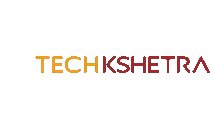The Role of Quizzes in E-Learning: Enhancing Knowledge Retention
Published: Nov 29, 2024

In the ever-evolving world of e-learning, ensuring that learners don’t just absorb but truly
retain the knowledge they acquire is essential for long-term success. One of the most effective tools
to achieve this goal is the use of quizzes. Far from merely being a method of assessment, quizzes
serve as a powerful tool for reinforcing concepts, boosting retention, and elevating the entire
learning experience. Let’s explore how incorporating quizzes into e-learning can significantly enhance
knowledge retention and make online education even more impactful.
Active Recall: The Core of Learning
Active recall is the process of actively stimulating memory during the learning process. It is one of the most effective methods for improving retention, and quizzes are a direct way to implement it. By prompting learners to retrieve information from memory, quizzes force the brain to reinforce neural pathways, making the learned information more accessible and easier to recall in the future.
When quizzes are integrated throughout the learning process, they help students transition from passive learning (simply reading or listening) to active engagement. As a result, learners don’t just passively absorb material they actively participate in their own learning, which significantly boosts retention.
Immediate Feedback: Instant Course Correction
One of the primary benefits of using quizzes in e-learning is the ability to provide immediate feedback. Unlike traditional methods of teaching where students may not know they’ve made a mistake until after the fact, quizzes provide instant correction. This immediate feedback prevents misconceptions from taking root and allows learners to make adjustments to their understanding while the information is still fresh.
For example, after an incorrect answer, a well-designed quiz can offer explanations for why the answer is wrong, and in many cases, provide hints or references to the course material that can help learners better understand the correct response. This quick correction reinforces the learning process and ensures that errors do not go unaddressed.
Engagement and Motivation: Making Learning Fun
Quizzes can significantly boost engagement by turning the learning process into a more interactive and enjoyable experience. Gamifying quizzes with rewards, time challenges, or competition can motivate students to take the assessments seriously and approach them with enthusiasm.
Providing learners with regular quizzes creates a sense of progression, which is motivating. The feeling of accomplishment when achieving high scores encourages continued participation in the course. As learners see their improvement through quiz scores, they’re more likely to stay committed and invested in the learning process.
Spaced Repetition: Enhancing Long-Term Retention
Spaced repetition is a scientifically proven technique that involves reviewing material at gradually increasing intervals. When quizzes are distributed throughout the course at these intervals, they prompt learners to recall key concepts multiple times.
This spaced review combats the forgetting curve, which suggests that without review, learners will forget much of what they’ve learned over time. By revisiting material through periodic quizzes, learners retain more information for the long term, ensuring that the knowledge sticks and is ready for application when needed.
Reduces Test Anxiety and Builds Exam Confidence
Regular self-assessment can be an effective way to reduce anxiety in high-stakes testing situations. Practicing with quizzes familiarizes individuals with the format, type of questions, and time management required for exams or evaluations. Over time, this practice can help individuals approach formal tests with a calm, focused mindset, knowing they’ve prepared thoroughly and tested themselves repeatedly.
Self-Assessment: Empowering Learners
Quizzes also serve as a tool for self-assessment. By testing themselves on course material, students gain insight into their understanding of the content. This self-reflection encourages independent learning, as students can identify gaps in their knowledge and focus on areas where they need improvement.
Moreover, quizzes help build confidence. When learners successfully answer questions, they gain a sense of achievement. This sense of mastery can motivate them to continue studying and further deepen their knowledge.
Adaptability: Personalized Learning Experiences
Quizzes can be adapted to individual learning needs. Advanced learners can be given more challenging questions, while those struggling with specific topics can benefit from quizzes that focus on areas where they need more practice. This adaptability makes quizzes a powerful tool for personalized learning, allowing students to learn at their own pace and ensuring they grasp key concepts before moving forward.
Additionally, quizzes can be structured to assess different levels of learning, from basic recall to higher-order thinking. Multiple-choice questions can assess knowledge recall, while essay-type questions can evaluate a learner’s ability to synthesize and apply information.
Variety of Question Types: Engaging Different Learning Styles
To maximize the effectiveness of quizzes, it’s important to incorporate a variety of question types. Multiple-choice, true/false, and short-answer questions all serve different purposes and can engage learners in different ways.
• Multiple-choice questions assess recognition and understanding of concepts.
• True/false questions encourage quick decision-making and basic comprehension.
• Short-answer questions require deeper recall and critical thinking.
Conclusion
Quizzes are more than just assessments; they are an essential tool for enhancing knowledge retention in e-learning environments. By leveraging active recall, providing immediate feedback, offering opportunities for self-assessment, and incorporating spaced repetition, quizzes can significantly boost the effectiveness of online education. Their ability to keep students engaged, motivated, and confident in their knowledge makes them an invaluable part of the e-learning experience.
As e-learning continues to evolve, quizzes will remain a fundamental tool in ensuring learners retain and apply the knowledge they gain, leading to more successful and impactful educational outcomes.
.png)




